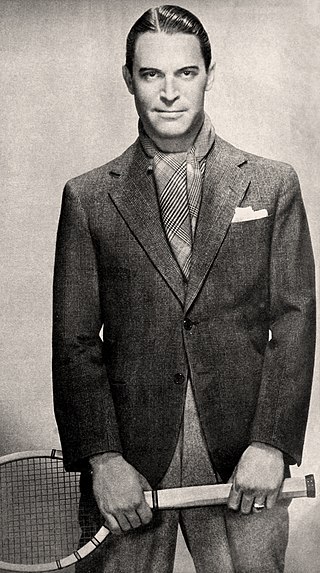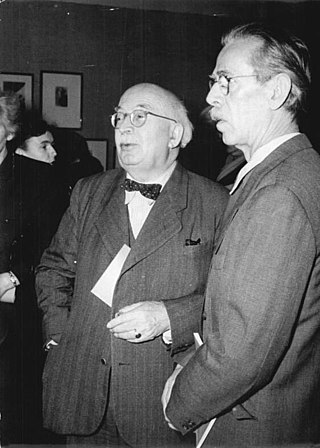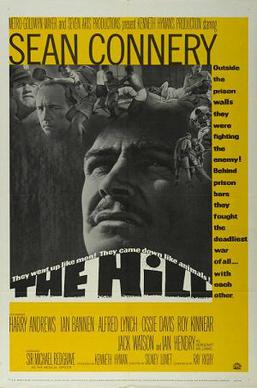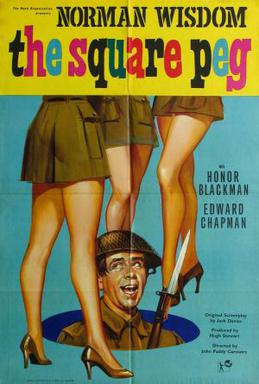
Alibi is a 1929 American crime film directed by Roland West. The screenplay was written by West and C. Gardner Sullivan, who adapted the 1927 Broadway stage play, Nightstick, written by Elaine Sterne Carrington, J.C. Nugent, Elliott Nugent, and John Wray.

The Big House is a 1930 American pre-Code prison drama film directed by George Hill, released by Metro-Goldwyn-Mayer, and starring Chester Morris, Wallace Beery, Lewis Stone and Robert Montgomery. The story and dialogue were written by Frances Marion, who won the Academy Award for Best Writing Achievement. As one of the first prison movies, it inspired many others of this genre.

Thunderbolt is a 1929 American pre-Code proto-noir film directed by Josef von Sternberg and starring George Bancroft, Fay Wray, Richard Arlen, Tully Marshall and Eugenie Besserer. It tells the story of a criminal, facing execution, who wants to kill the man in the next cell for being in love with his former girlfriend.

John Chester Brooks Morris was an American stage, film, television, and radio actor. He had some prestigious film roles early in his career, and received an Academy Award nomination for Alibi (1929). Morris is remembered for portraying Boston Blackie, a criminal-turned-detective, in the Boston Blackie film series of the 1940s.

Bulldog Drummond is a 1929 American pre-Code crime film in which Hugh "Bulldog" Drummond helps a beautiful young woman in distress. The film stars Ronald Colman as the title character, Claud Allister, Lawrence Grant, Montagu Love, Wilson Benge, Joan Bennett, and Lilyan Tashman. Produced by Samuel Goldwyn and directed by F. Richard Jones, the movie was adapted by Sidney Howard from the play by H. C. McNeile.

Arnold Zweig was a German Jewish writer, pacifist and socialist.

Sahara is a 1943 American action war film directed by Zoltán Korda and starring Humphrey Bogart as an American tank commander in Libya who, along with a handful of Allied soldiers, tries to defend an isolated well with a limited supply of water from a Libyan Afrika Korps battalion during the Western Desert Campaign of World War II.

Private's Progress is a 1956 British comedy film directed by John Boulting and starring Ian Carmichael, Peter Jones, William Hartnell and Terry-Thomas. The script was by John Boulting and Frank Harvey based on the novel of the same name by Alan Hackney.

The Hill is a 1965 British prison drama war film directed by Sidney Lumet and distributed by Metro-Goldwyn-Mayer. It depicts the physical and psychological power struggles of a British military prison in North Africa, near the end of the Second World War. The title refers to a large mound prisoners are made to repeatedly climb. The film stars Sean Connery, Harry Andrews, Ian Bannen, Ossie Davis, Ian Hendry, Alfred Lynch, Roy Kinnear and Michael Redgrave.
Red Cherry is a 1995 film directed by Ye Ying. The Director of Photography was Zhang Li, a fifth generation filmmaker and classmate of Chen Kaige. Red Cherry won Best Picture at the 1996 Golden Rooster Awards.

The Case of Sergeant Grischa (1927) is a war novel by the German writer Arnold Zweig. Its original German title is Der Streit um den Sergeanten Grischa. It is part of Zweig's hexalogy Der große Krieg der weißen Männer. It was part of the so-called "war book boom" of the late 1920s, during which many veterans of the First World War turned their memories and experiences into semi-autobiographical novels. The first English edition was published in 1928.

During World War II, the German Wehrmacht committed systematic war crimes, including massacres, mass rape, looting, the exploitation of forced labour, the murder of three million Soviet prisoners of war, and participated in the extermination of Jews. While the Nazi Party's own SS forces was the organization most responsible for the Holocaust, the regular armed forces of the Wehrmacht committed many war crimes of their own, particularly on the Eastern Front.

Prisoner of the Mountains, also known as Prisoner of the Caucasus, is a 1996 Russian war drama film directed by Sergei Bodrov, based on the 1872 short story The Prisoner in the Caucasus by Leo Tolstoy. The film explores the clash between traditional Chechen culture and Russian military tactics during the First Chechen War, focusing on the personal struggle between two Russian soldiers and their Chechen captors.

The Captain from Köpenick is a 1956 West German comedy film directed by Helmut Käutner and based upon the 1931 play The Captain of Köpenick by Carl Zuckmayer. The play was based on the true story of Wilhelm Voigt, a German impostor who masqueraded as a Prussian military officer in 1906 and became famous as the Captain from Köpenick. It was nominated for the 29th Academy Awards in the category Best Foreign Language Film.

Gustav von Seyffertitz was a German film actor and director. He settled in the United States. He was born in Haimhausen, Bavaria, and died in Los Angeles, California, aged 81.

The Leipzig war crimes trials were held in 1921 to try alleged German war criminals of the First World War before the German Reichsgericht in Leipzig, as part of the penalties imposed on the German government under the Treaty of Versailles. Twelve people were tried, and the proceedings were widely regarded at the time as a failure. In the longer term, they were seen by some as a significant step toward the introduction of a comprehensive system for the prosecution of international law violations.

The Square Peg is a 1958 British war comedy film directed by John Paddy Carstairs and starring Norman Wisdom. Norman Wisdom plays two different characters: a man who digs and repairs roads, and a Nazi general.
John Tribby was an American sound engineer. He was nominated for an Academy Award in the category Sound Recording for the film The Case of Sergeant Grischa.
Leyland Hodgson, also known as Leland Hodgson, was an English-born American character actor of the 1930s and 1940s. Born in London on 5 October 1892, Hodgson entered the theatre in 1898. In his early 20s Hodgson was part of a touring theatre company, spending his time in the British areas of the Far East, before entering the stage in Australia. In 1930 moved to the United States, where he made his film debut in the Oscar-nominated film, The Case of Sergeant Grischa in 1930.

Burnt by the Sun 3: The Citadel is a 2011 Russian drama film directed, written, produced and starring by Nikita Mikhalkov, released on May 5, 2011. It is a sequel to the films Burnt by the Sun (1994) and Burnt by the Sun 2: Exodus (2010). Burnt by the Sun 3: The Citadel, like a predecessor, had the largest production budget ever seen in Russian cinema, but it turned out to be Russia's biggest box office flop, and received negative reviews from critics both in Russia and abroad. The film was selected as the Russian entry for the Best Foreign Language Film at the 84th Academy Awards, but it was not nominated.

















